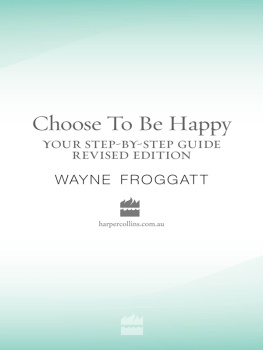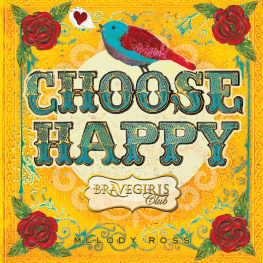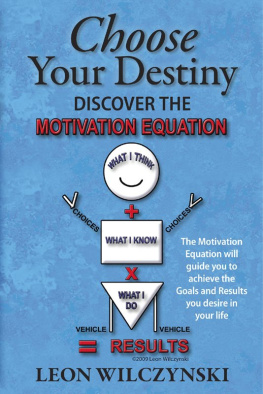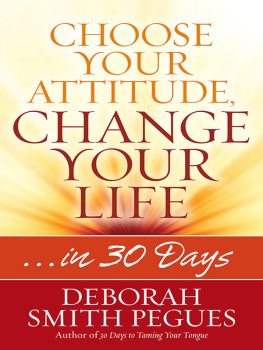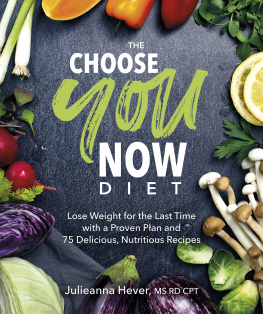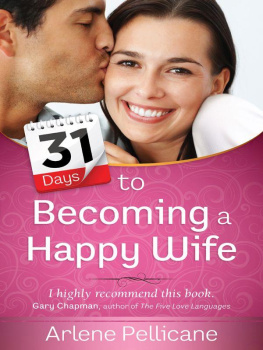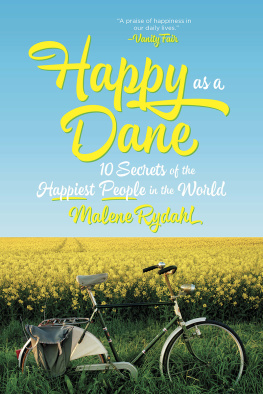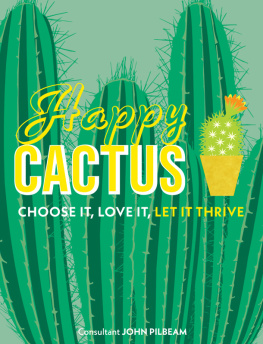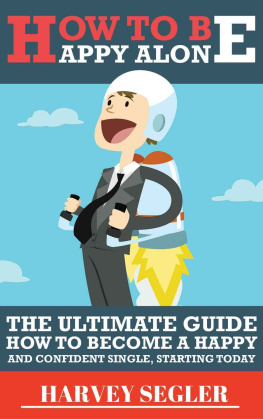Contents
. Self-understanding and the tools for change
. Who controls you?
. Taking back your power
. What is irrational thinking?
. Distorting reality
. Demanding: turning wants into needs
. Catastrophising: making mountains out of molehills
. People-rating: are you living down to your label?
. Rational Self-Analysis
. Learning self-analysis: practice exercises
. Applying self-analysis to lifes common problems
. What are you really afraid of?
. Give up guilt: you dont need it
. Climbing out of the black hole: no more depression
. Anger: whos in charge?
. You dont need approval
. How to get more of what you want and less of what you dont
. Are you trying to be perfect?
. What do you really want out of life?
. Changing your circumstances
. Managing stress
. Putting it all together: twelve principles for rational living
. Overcoming blocks to change
. Getting help
GoodStress: The life that can be yours
FearLess: Your guide to overcoming anxiety
First published 1993
Second edition 2003
This edition published in 2013
HarperCollins Publishers (New Zealand) Limited P.O. Box 1, Auckland
ABN 36 009 913 517
harpercollins.com.au
Copyright Wayne Froggatt 1993, 2003
Wayne Froggatt asserts the moral right to be identified as the author of this work.
All rights reserved. No part of this publication may be reproduced, stored in a retrieval system or transmitted in any form or by any means, electronic, mechanical, photocopying, recording or otherwise, without the prior written permission of the publishers.
HarperCollins Publishers
Level 13, 201 Elizabeth Street, Sydney NSW 2000, Australia
31 View Road, Glenfield, Auckland 0627, New Zealand
A 53, Sector 57, Noida, UP, India
7785 Fulham Palace Road, London W6 8JB, United Kingdom
2 Bloor Street East, 20th floor, Toronto, Ontario M4W 1A8, Canada
10 East 53rd Street, New York NY 10022, USA
National Library of New Zealand Cataloguing-in-Publication Data
Froggatt, Wayne.
Choose to be happy : your step-by-step guide / Wayne Froggatt.
Rev. ed.
Previous ed.: 1993.
Includes bibliographical references and index.
ISBN 978-1-86950-495-3 (pbk.)
ISBN 978-1-77549-071-5 (epub)
1. Self-actualization (Psychology) 2. Rational-emotive
psychotherapy. I. Title.
158.1dc 21
This publication is designed to provide accurate and authoritative information on the subject matter covered. It is sold with the understanding that the publisher is not engaged in rendering psychological, financial, legal, or other professional services. If expert assistance or counselling is needed, the services of a competent professional should be sought.
Of the people who have contributed to this book, many will remain anonymous. They are the clients who have shared with me their thoughts about the self-help methods I have taught them. In this way, they have in turn taught me how to refine these methods to the point where they are ready to be presented to a wider audience.
There are colleagues who have spent many hours reading drafts and providing constructive comment. My special thanks to Terri Smith and Stefan Thevessen, who met with me regularly and helped me set the direction for the book, and encouraged me when the task began to seem dauntingly long-term; to Audrey Adams, for her support and the help she gave me on the writing process; to Linda Kennington and Judy Wilford, who have edited the book in its entirety, providing extensive comments both from the point of view of the professional social worker and the professional editor; and to David Ramsden and Dr Tom Flewett, for feedback and guidance on specific chapters relating to their fields of expertise.
Perhaps the person who knows the book best is my wife, Glenys, who has edited each chapter so many times she can almost recite them from memory. I owe a great debt to my family for the way they have kept the home running over the years I have been locking myself away to write.
Finally, this book owes much to the work of two people whom I have met only through their writings: Drs Albert Ellis and Aaron Beck. It is to Dr Beck I owe my understanding of the ways in which human beings distort reality; and to Dr Ellis that crucial insight into how we apply personal meanings to our interpretations of reality. I hope that my book, in the way it has attempted to integrate their thinking, has done justice to the parallel but related systems of psychotherapy they have so elegantly developed over the past four decades.
Wayne Froggatt, 1992
Many people, without realising they were doing so, have contributed to this new edition of Choose to be Happy . Readers have shared those parts of the first version they found especially helpful; colleagues have asked: Why dont you add such and such? and, finally, there are the teachers from whom I have learned so much more about cognitive-behavioural psychotherapy over the past 10 years. Drs Ellis and Beck are still in practice and contributing to the literature on CBT. As well as Dr Ellis, I have received stimulating training from such people as Janet Wolfe, Ray DiGiuseppe and Michler Bishop from the Albert Ellis Institute in New York, and Rob Dawson and Monica OKelly from the Australian Institute for Rational Emotive Therapy. I am especially indebted to Professor Stephen Palmer from the UK Centre for Rational Emotive Behaviour Therapy, for his support in the development of REBT in my own country and his encouragement to maintain a scientific, evidence-based approach which, I trust, this book continues to reflect.
Wayne Froggatt, 2003
Why another book applying rational-emotive behaviour therapy (REBT) and cognitive-behaviour therapy (CBT) to self-help procedures? Arent there enough already?
In a word: No.
As the father of REBT and the grandfather of CBT, I am an old hand at self-help books myself, having written many of them, including How to Live with a Neurotic (Wilshire, 1957), A New Guide to Rational Living (Wilshire, 1975) and How to Stubbornly Refuse to Make Yourself Miserable About Anything Yes, Anything! (Lyle Stuart, 1988). So I know how important it is to state the principles and practices of REBT in a highly readable, understandable and usable form.
Wayne Froggatt has done exactly this. Although REBT is at times subtle and complex especially when it teaches people how to accurately rate and measure their acts and performances while refraining from inefficiently and self-defeatingly rating their self, their being or their personhood the author of the present book has included its main concepts, has lucidly explained them, and has nicely shown his readers how to apply them effectively in their own lives.
In Part I of his book, Froggatt has outlined the general theory and practice of rational-emotive therapy and cognitive-behaviour therapy, including useful exercises that readers can employ on their own. In Part II he applies REBT and CBT methods to some of the most common specific disturbances, such as worry, guilt, depression, rage, the need for approval, unassertiveness and perfectionism. It is amazing how he covers so much ground in so little space and with such clarity. This book is hardly a cure-all for every conceivable emotional and behavioural problem. But, used with energetic application, it can greatly help!
Albert Ellis, PhD, President
Institute for Rational-Emotive Therapy

